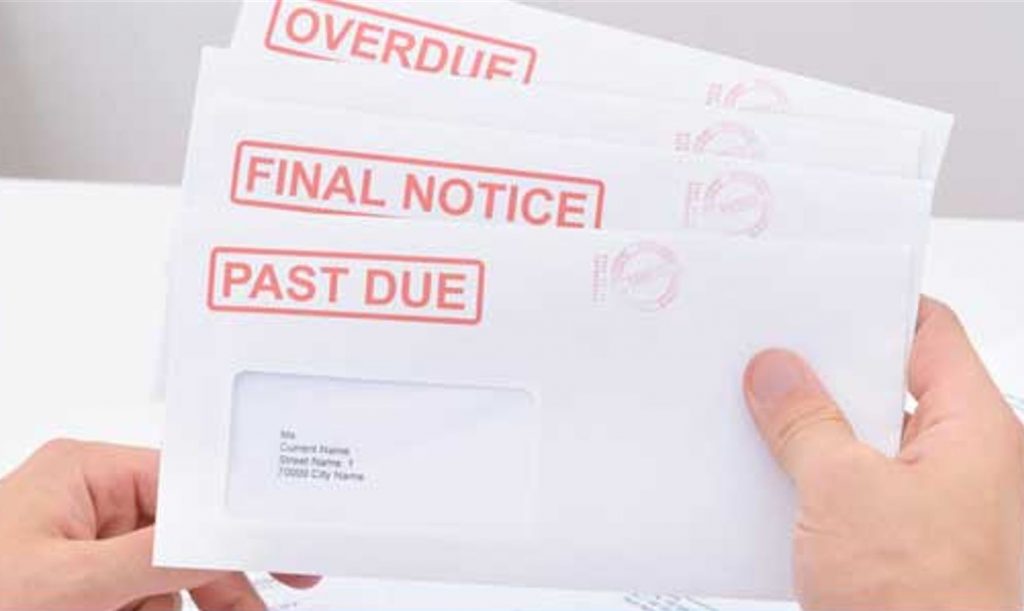
Owning and running a business involves a careful balancing act. From accounts to clients, goods and services to cash flow – at any one time, there is a lot going on. So, the last thing you need is having to chase clients for unpaid invoices.
As a business owner, one of the things you strive for is to create business strategies and processes that help in preventing disruptions to your cash flow. This involves ensuring that you have appropriate processes in place to manage clients and payments, including overdue invoices.
When it comes to getting your clients to pay, well that can sometimes be a bit of a minefield. While you might find that majority of your customers will do the right thing and pay their invoices on time. However, it is rare for any business to escape having to deal with at least one delinquent customer.
So, how do you ensure that your customers pay? Well, you need to strike a balance – you don’t want to be too laissez-faire or easy going, especially when it comes to late payments, or you might find that they don’t prioritise paying you. And if you appear too strong when you start collecting payments from your valued clients, it might intimidate and possibly damage the relationship you have with them. Let’s not forget that you might be doing something illegal by threatening a client.
In collecting money from your customers, maintaining a friendly and professional manner is key in debt recovery. Your professionalism will also likely remind them of the reasons they chose to do business with you in the first place.
If you find it difficult or uncomfortable to collect payments from clients – particularly overdue payments – then keep reading to find out our debt recovery tips that not only make the payment recovery process a lot easier, but also will not endanger your working relationship with your customers.
6 Tips to Make Collecting Payments from Customers Easier

1. You establish an invoice tracking system
How often do you keep track of accounts receivables? Are you updated with the latest payments or lack thereof? For easy tracking, you must have a system for following up on any lapsed payments.
To start with, automate a standard procedure by completing a script for phone calls and letter templates. Following an instance and tailored to multiple points, an invoice should be sent if the client’s payment is three, fifteen, or thirty days late and so forth.
Including a reminder in keeping detailed records of the customers’ unpaid invoices and attempting consecutive follow ups throughout the entire process are considered a smart move. You must keep them on hand for reference whenever you wish to contact a client.
2. You follow up with a letter
A reminder letter will serve as a way of chasing invoice payments as you ensure that the professional working relationship with your debtors is maintained.
Professionalism includes remaining calm, confident, and polite whenever you deal with your debtors. Using any threat and intimidation tactics isn’t recommended. Should the debt escalate to legal proceedings, you’d want to appear professional throughout the debt collection process instead of articulating threatening language that’ll poorly reflect on you.
At the end of the initial letter, this is now your chance to give them a prompt to call you back to discuss the payment. This will also allow them to broach the topic of any financial difficulties they may be experiencing. If this method doesn’t solve the issue, then it’s your choice to take this into the next step.
3. You make a phone call
If a reminder letter has been sent to your debtor and they didn’t give any explanation why they haven’t paid the overdue payment, an outbound call is the next step. Remind yourself that you have to act professionally at all times.
Most of the time, this is a phase when your debtor will explain their side as to why they missed paying their overdue payment. As much as you want to be paid, give them time to explain their end in order for you to gauge the situation better. In any instance that they show hostile behaviour, you have to remain calm and de-escalate the situation while ensuring that the need to solve the issue is being reiterated.
4. You re-establish payment terms and options
One effective way to recover money owed is offering other payment options and terms but this definitely depends on your firm’s policies and your clients’ financial situation.
Additionally, one solution that can be done is offering an installment plan over an agreed upon timespan including the interest and late fees for any future overdue payment. This also considers the value of your client in your firm. This allows them to recover from financial difficulty in the future as their prospective lifetime value is being considered.

5. You send a letter of demand
Once you’ve sent two reminder letters and they don’t seem to be cooperating, a letter of demand will be your next move. This letter enforces a clear payment date and includes the intention to escalate the process to a professional third party (debt collector) or pursuing legal action as you would want to express the seriousness in recovering the debt.
6. You outsource to a professional debt collection agency
If you’ve exhausted all the tips already, this is the time to hire a professional debt collector. Researching the agency in advance is also an important task. You should be aware about their techniques, processes, and tools for tracing runaway debtors. Debt collectors are professionally honed to go above and beyond in the debt collection process.
Many businesses make the mistake of believing they can only get a debt collector involved as a last resort – after they have exhausted everything else. But getting them involved earlier in the process can help your business out tremendously. If you have sent letters, including a letter of demand and even tried to workout a new payment terms, it’s definitely worth talking to a debt collector.
Debt collectors have an in-depth knowledge about the law guidelines, which makes them extremely effective in the collection process – this is really only one of the benefits of choosing to work with a debt collection expert. They also work with the professionalism that you would expect within your own business, their job isn’t to intimidate people into paying, it’s to find solutions that will work. So, if you find yourself in a situation where your payment collection process is failing, it might be time to call in the professionals.
If you’re looking for a debt collection agency in Australia to help your business, JMA Credit Control has decades of accumulated experience when it comes to debt recovery. We don’t charge our clients until the debt has been paid – and this policy means a lot to struggling business owners whose cash flow has been disrupted. Contact us today on 1300 664 223 and learn more about how we can be an asset to you and your and business.
We help businesses Australia-wide and we’re waiting to work with you today.





















